#haitian literature
Text
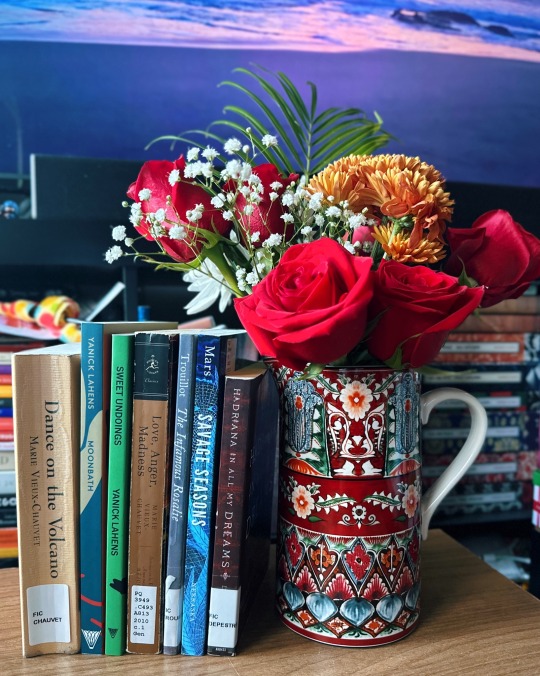
The island nation of Haiti has a rich history haunted by imperialist violence and cruelty. My most recent list of books-in-translation features books from Haiti, books that dive into historical fiction or contemporary satire, digging into everything from character-driven narrative to Vodou to the politics of survival. Check out all of my recommendations!
#haitian literature#books in translation#yanick lahens#marie vieux-chauvet#moonbath#savage seasons#book stacks
49 notes
·
View notes
Text
Breath, Eyes, Memory
by Edwidge Danticat
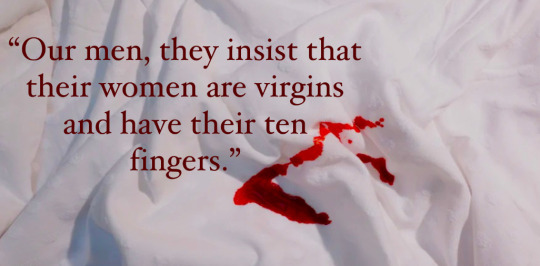
“Her ten fingers had been named for her even before she was born. Sometimes, she even wished she had six fingers on each hand so she could have two left for herself.”
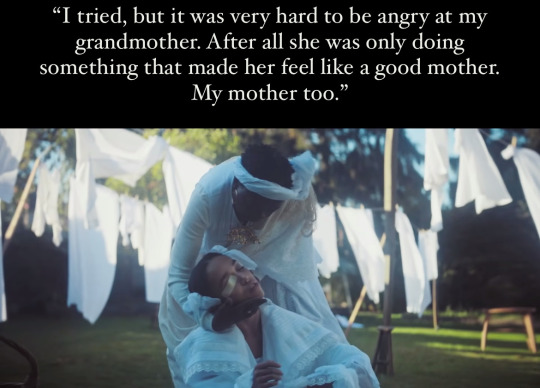
“If it is a girl, the midwife will cut the child’s cord and go home. The mother will be left in the darkness to hold her daughter. There will be no lamps, no candles, no more light.”
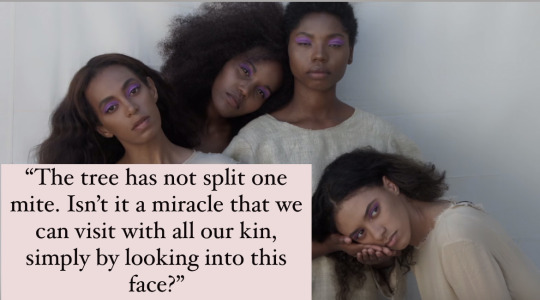
“I am tired. I woke up one morning and I was old myself. They train you to find a husband. They poke at your panties in the middle of the night, to see if you are still whole. They listen when you pee, to find out if you’re peeing too loud. If you pee loud, it means you’ve got big spaces between your legs. They make you burn your fingers learning to cook. Then still you have nothing.”
“I didn’t feel guilty about burning my mother’s name anymore. I knew my hurt and hers were links in a long chain and if she hurt me, it was because she was hurt, too.

It was up to me to avoid my turn in the fire. It was up to me to make sure that my daughter never slept with ghosts, never lived with nightmares, and never had her name burnt in the flames.”
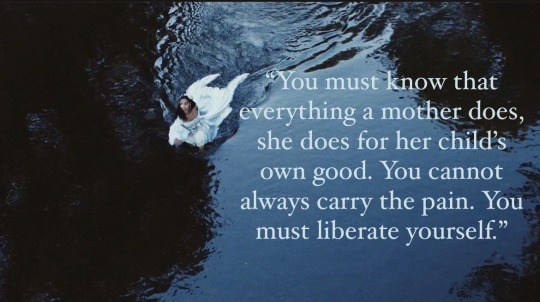
“From where she was standing, my grandmother shouted like the women from the market place, “Ou libere?” Are you free?
Tante Atie echoed her cry, her voice quivering with her sobs.
“Ou libere!”

#breath eyes memory#edwidge danticat#web weaving#sophie caco#atie caco#martine caco#caribbean literature#Haitian literature#black femininity#black girl#black books
5 notes
·
View notes
Text
13 Days of Halloween: "Lucky Night" Short Story Review by Harry Victor
#bookworm#book reviews#literature#books#read read read#horror#halloween#13 days of halloween#lucky night#haiti#Haitian literature#harry victor#political corruption#voudou
0 notes
Text
What will I tell you
When you ask me
Father, speak to us of Haiti?
Then my eyes sparkling with pride
I would love to tell you
Of the blue mornings of my country
When the mountains stretch out
Present Past Future Marc Christophe
#the butterflys way#edwidge danticat#haitian literature#may haiti reach its best in our lifetimes#happy independence day
1 note
·
View note
Text
a trinidadian woman
tells me a hot-blooded man
dances like slow winds
in haitian halls/
Ntozake Shange
#alliwanttodoiscollectpoetry#poem#poetry#poems#poet#poets#anthology#tumblr poetry#poem of the day#poetry blog#Ntozake Shange#wild beauty#Haiti#Haitian#Trinidad#Trinidadian#book worm#literature#poems and poetry#poetry excerpt#poetry in translation#Spanish poetry#poemblr#poetblr#poetic#daily poems
45 notes
·
View notes
Text
un tambor podía significar, en ciertos casos, algo más que una piel de chivo tensa sobre un tronco ahuecado. Los esclavos tenían, pues, una religión secreta que los alentaba y solidarizaba en sus rebeldías [...] hablándose con los tambores de calendas
Alejo Carpentier, El reino de este mundo
#el reino de este mundo#alejo carpentier#haiti#haïti#ayti#cuba#cúba#realismo magico#realismo mágico#lo real maravilloso#realismo fantastico#realismo fantástico#estoy leyendo#caribbean art#caribbean literature#latin american literature#literatura latinoamericana#literatura latina#citas de libros#blog de literatura#reading blog#voudou#vudú#vudu#vodou#vodoun#haitian vodou#haitian revolution#literatura en español#cita de libros
7 notes
·
View notes
Text

Pour rassembler les continents (To bring together the continents) de Rodney Saint-Éloi (tr. André Naffis-Sahely)
#pour rassembler les continents#Rodney Saint-Éloi#quote#typography#poetry#aesthetic#dark academia#light academia#french academia#frenchblr#literature#poets of color#haitian poets#André Naffis-Sahely#light
24 notes
·
View notes
Text
There is always a place where, if you listen closely in the night, you will hear a mother telling a story and at the end of the tale, she will ask you this question: ‘Ou libéré?’ Are you free, my daughter?
Edwidge Danticat, from Breath, Eyes, Memory
#caribbean literature#edwidge danticat#haiti#haitian heritage month#francophone caribbean#mothers#mothers and daughters
0 notes
Text

From Capitalism to Revolution: Understanding Haiti's Economic Struggles with the Film 'Madan Sara'
by Levi Wise Kenneth Catoe Jr.
The documentary from Etant Dupain, Madan Sara (2021), foregrounds the hard-working women at the heart of Haiti’s economy. I had the chance to see the documentary when it screened at Medgar Evers College on February 5, 2024, followed by a Q&A with the film’s co-executive producer, Lulaine Childs. The issues raised by the film resonated deeply at this moment, as Haiti faces a new crisis and the hard-won stability of the Madan Sara is threatened. The film is entirely in Haitian Creole and features one-on-one interviews, archival footage from Haitian revolts, and television news footage from the uprisings that have taken place in Haiti in recent years that have negatively impacted the country.
I was deeply impressed with the documentary and I felt empathy for the Madam Sara community. Because of the similarities in the African Diasporic experience, I connect to their experience in Haiti as if it were my own in the United States, although we were divided geographically through the Trans-Atlantic Slave Trade. I hope that everyone has a chance to view this film and that it sparks discourse around the Madan Sara and the ongoing struggle for national autonomy in Haiti. It’s a conversation that is centuries in the making and needs, more than ever, to be had. To learn more about the film and the “Madan Sara,” I caught up with the film’s co-executive producer, Lulaine Childs.
Levi Wise-Catoe: Hi Lulaine! Could you please explain what the film Madan Sara is about and who the “Madan Sara” are?
Lulaine Childs: The women known as Madan Sara in Haiti work tirelessly to buy, distribute, and sell food and other essentials in markets throughout the country. Despite the obstacles faced by the women working in a sector that lacks investment, infrastructure, and state assistance, the Madan Sara continues to be one of the most critical parts of the Haitian economy and of who we are as a country. The Madan Sara documentary tells the stories of these indefatigable women who work at the margins to make Haiti’s economy run. Despite facing intense hardship and social stigma, the hard work of the Madan Sara puts their children through school, houses their families, and helps to ensure a better life for generations to come. This film amplifies the calls of the Madan Sara as they speak directly to society to share their dreams for a more just Haiti.
LWC: I loved the movie. What was your filmmaking process like? Was it an easy process or was it difficult? And if it was easy or difficult, how?
LC: Independent filmmaking is always a difficult process because funds are limited and time is of the essence. For this film, it wasn’t a particularly hard process because Etant, Tina, Natalie, Wesly, and the rest of the team really did the heavy lifting. I think having a good team in place is key to making the process easier because doing this alone would be very difficult even for the most seasoned filmmaker.

LWC: In the film, Haiti is depicted as a community held together by strong Black women and by Black women’s entrepreneurship. Do you feel that is something that connects to the Black community in the US as well, where the Black community is often held together by strong Black women?
LC: I think it’s a common thread among the African diaspora. The strong Black woman has been and continues to be the “poto-mitan” of the society [note: the “poto-mitan” is a pillar that is found as the central architectural feature of Haitian vodou temples]. Nothing moves without their participation. A lot of times the leadership of men is talked about and heralded. Oftentimes, Black women still have a hard time getting heard, although it has gotten better over the years. You find them being the head of a lot of households, they are the ones who are doing the organizing, and sometimes they are the faces of certain movements. Without the women being as strong as they are, Black communities all over the world would be in a state of chaos.
LWC: What is the message that you would like for people to walk away with after viewing your film?
LC: The Madan Sara, like all women who do their work in the global south, deserve to be praised and the issues that affect them need to be handled so the countries can move forward. Despite all the odds, the Madan Sara have been able to feed their families, put their kids through school, and maintain their lifestyle. However, in these modern times, Haiti as well as other countries where women do this work should find a way to help lighten the burden they carry doing the work. Things like health insurance, property insurance for their merchandise, safe streets, access to credit, clean workspaces, and adequate bathroom facilities at the market, are just some of the things that should be in place for them.

LWC: As a Haitian-American, do you feel more Haitian or American? Which culture defines your character, being Haitian or being a U.S.-American from Brooklyn?
LC: I’m definitely more American from Brooklyn, but the more I learn about Haiti it gives me a better sense of self, if that makes sense. I have come to integrate certain aspects of the culture to my lifestyle.
LWC: How does the strife in Haiti affect you?
LC: Personally, it doesn’t really affect me. My ties to Haiti are limited. However, I do have some colleagues and contemporaries from Haiti I work with, and through them and the news I get an understanding of how bad it is. People have basically had their lives upended because certain people in the country want to keep it on its knees. Anywhere black people are suffering whether it be Congo or Haiti, it’s a terrible situation. Even the situation in Palestine specifically with what’s happening in Gaza and what happened in Israel on October 7th, human suffering is a terrible burden to deal with.
LWC: How do you think your film may change the negative perception that people may have regarding Haiti? Haitians?
LC: I think after seeing the film people will learn something new about Haiti. I also think the film humanizes the Haitian woman who is working as a Madan Sara. When people read or watch the news, they may see a woman selling food in the public market and think nothing of it. I think after watching this film and really getting an idea of what this woman has to do to feed her family, it will give them a different idea of the country and its people.
LWC: In your own words, could you tell the audience of Musings blog why they should all go watch your film Madan Sara?
LC: I think the audience should see Madan Sara because they may learn something new about Haiti. Madan Sara is a different story from the usual stories of disaster and chaos that tend to circulate about the country. While most of those stories are about current events, stories about people like the Madan Sara exist and deserve to be told.
LWC: How do Haiti’s problems and social disorder affect the whole African Diaspora? Are we all impacted by the political rebellion taking place in Haiti? And how difficult was it for you to include gang warfare in your film?
LC: Haiti is arguably the greatest symbol of Black power in the world. Once the country declared its independence by defeating the French and keeping the other world powers at bay, it was a signal to the entire world—especially black people—that freedom and independence were attainable. However, since that time Haiti has suffered for it. Part of it could be a conspiracy by world powers to make Haiti look bad, as some would suggest. I think there are a lot of things happening at the same time. Corruption, bad and weak governance, the lack of true relationships with other countries, the inability to grow the economy, and the unfettered presence of NGOS, in my opinion, have all worked to put Haiti in its current state. I also think part of the disorder is due to the long-lasting impact of slavery and colonialism throughout the African diaspora. I think there are still things we are learning about how slavery was and the mental impact it had on our people. In addition, I think the very real emotional, mental, and physical trauma still rears its ugly head even in the ways we act and how the outside world views the African diaspora. That is the reason unity and economic independence are always talked about, but never really materialize.
LWC: How do you feel regarding current news about the Haitian gangs’ war against law enforcement and the freeing of Haitian prisoners? And how does this affect Black people in the U.S. who are also dealing with our own mass incarceration?
LC: The situation in Haiti continues to get worse because of the insecurity in the country due to the elected officials and others in their positions not doing their work. A situation like a prison break isn’t new in Haiti, but obviously, it is a terrible occurrence on top of the recent events taking place in the country. It just adds to the narrative of the country being chaotic, but it took years to get to this state. A lot of people abdicated their responsibility while in power or were just corrupt officials using their positions and their resources to cause damage to the country. As far as Black people in the U.S. it just gives those who already have negative ideas about us somewhere they can point their finger, making it seem like there is a simple answer. Those same people will ignore everything that came before and the effect it had which may lead to a situation like what’s taking place in Haiti. Corruption, the institutionalization of bad ideas, and the abdication of responsibility by those in power, all play huge roles in the mass incarceration of Black people.
LWC: What film are you working on now?
LC: We are working on a comedy film called Mainland. We are also working on a documentary about the 1974 Haitian World Cup team. We are also helping other filmmakers promote and distribute their projects. One of them is a short film called N’AP Boule by Alexandrine Benjamin, a filmmaker from Haiti.
LWC: Thank you so much for your thoughtful replies, and best of luck in everything that you are working on. I look forward to your further success. Finally, as a filmmaker myself, I am interested if you are also utilizing the film competition route, which helps to build exposure and accolades.
LC: Yes, with this specific film, we entered different film festivals and won some awards. However, we didn't want to stay in that loop. For documentaries, a lot of the time the different distribution companies that work in the space tend to have a formulaic way of marketing the film, and the ones that approached us about distribution I felt weren't going to do a good job. So we decided to keep it ourselves and work on the film on our own. We have had a lot of success so far, we are just going to keep going with it.
LWC: Is there anything further that you would like to pass on as far as how someone may be able to find any additional information regarding your film?
LC: Not a problem, we have a website; feel free to use any additional information regarding the story: https://www.madansarafilm.com/

The media plays a crucial role in shaping the outcome of the Black narrative that affects the way Black people are viewed around the world – and this time, journalists must get it right. BOSS is committed to doing so, but we can only do it with reader support.
Levi Wise Kenneth Catoe Jr.
Editor, BOSS
#haiti crisis#black literature#black entrepreneurship#black history#free haiti#haitian#world news#news
0 notes
Text
No Need for Superstition
Are you superstitious?
Once, when I was around 7 years old, I woke up in the middle of the night to see my sister crouching, hugging her knees, and shaking in fear on the opposite corner of our bed. When we made eye contact, she pointed at the window. I looked and saw a black figure floating outside of the window. It was staring at us with eyes that gleamed with a color that I cannot remember.…
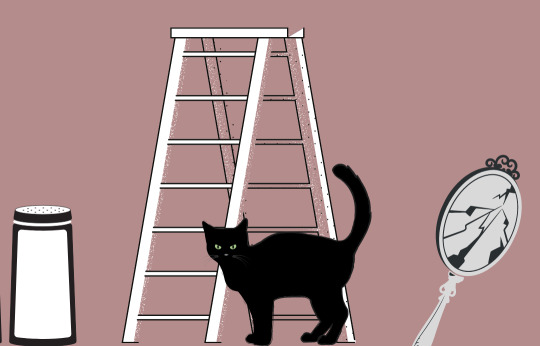
View On WordPress
#dailyprompt#dailyprompt-1875#Ghoststory#Haitian#haitianculture#imnotsuperstitious#literature#storytime#supernatural#writing
0 notes
Text
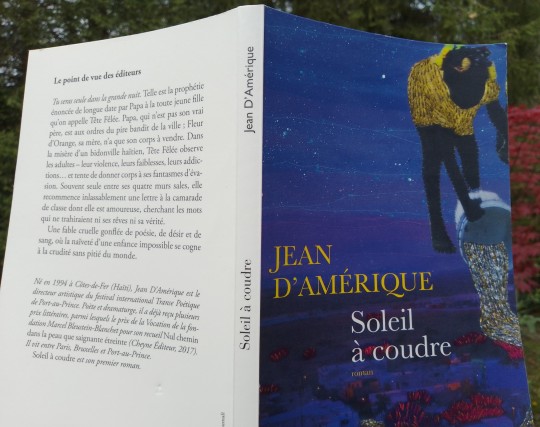
#jean d’amérique#Soleil à Coudre#book#literature#Haiti#haitian#That was really hard to read#Poetry#Violence#Storytelling#French#personal
1 note
·
View note
Text

Heading South by Dany Laferrière, translated by Wayne Grady, is an absolutely wild satire (that is very misunderstood in too many online reviews!) In a narrative told in interconnected short stories, a group of young Black men in Haiti leverage the racist voyeurism and daydreams of white female tourists against them. Sleeping with the visiting tourists or settled expats, the young men string the white women along, turning power dynamics on their head and gaining money and personal pride in the bargain.
As I wrote for Book Riot, "The book jumps from perspective to perspective to show the twisted mindsets of the women who are visiting compared to the young men who know exactly what those women want and aren’t misled about the biased fetishization of their desires but take advantage of it and form a new economy of sorts that’s all their own." It’s a smart, wild book that’s in turns funny, ridiculous, and dark.
Content warnings for ableism, misogynoir, racism, n-slur.
Catch my full list of Haitian literature in translation over at Book Riot!
#heading south#dany laferrière#haitian literature#books in translation#translated literature#my book reviews
12 notes
·
View notes
Text
Harold Courlander (September 18, 1908 – March 15, 1996) was an American novelist, folklorist, and anthropologist and an expert in the study of Haitian life. The author of 35 books and plays and numerous scholarly articles, Courlander specialized in the study of African, Caribbean, Afro-American, and Native American cultures. He took a special interest in oral literature, cults, and Afro-American cultural connections with Africa.
Well, when I checked the story is that Alex Haley wrote the book but apparently, Courlander sued him for plagiarism. But they settled the case including Haley had to post that he regrets some of the work of the African in his book ROOTS!
36 notes
·
View notes
Text
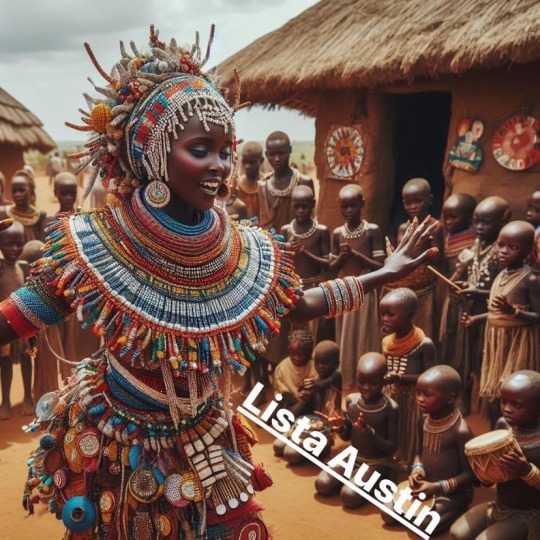
TOP 10 AFRICAN TRIBES/ETHNIC GROUPS THAT ARE GLOBALLY KNOWN.
(In no particular order)
1) Zulu ?? South Africa – The Zulu tribe is popular outside Africa. They’ve been featured in music, documentaries and movies. Shaka the Zulu was a warrior king whose popularity is well spread. Famous Zulus, Lucky Dube, Nasty C, black Coffee etc.
2) Yoruba ?? Nigeria – The Yorubas are globally known for their history, culture, art and literature. Fela, Wole Soyinka, Wizkid, Davido, Tiwa Savage, David Oyelowo, John Boyega, Anthony Joshua etc are a few Yorubas who have taken their culture to the world. The Yoruba culture has been featured in many Hollywood movies.
3) Masai ?? Kenya – The Masai are perhaps one of the most documented tribes in Africa, with alot of documentaries shown about them and books written about their culture.
They are known for their traditional clothing and hunting skills
4) Hausa ?? Nigeria – The hausas are very popular. Often known as the Igbos of the North, The richest black man in the world Aliko Dangote is Hausa along with his brother from the same state Kano Abdulsamad Rabiu (BUA). Their culture has also been well written about and have featured in a few Hollywood movies including the Amazon prime series were a woman was seen eating Tuwo shinkafa.
5) Igbo ?? Nigeria – The Igbos are undeniably known world wide. Chinua Achebe wrote about the Igbo culture alot. They are known for their history, culture and literature.
The popularized the kolanut and palm wine through books, movies and music
Chinwetalu Ejiofor, Zain Asher, Ckay, Flavour, Chimamanda, phyno, P-square are Igbos who have taken their culture to the world. Igbo are known in Nollywood movies.
6) Swahili ?? Tanzania – This tribe have phenomenal spread their language in East Africa and a few central African nations.
In the 70s, their language was part of the African-American black pride movement been pushed forward.
7) Edo/Bini ?? Nigeria – The Binis are perhaps the culture in Africa with the most famous artworks outside Egypt.
Binis are known for their history, culture and art/architecture.
The famous Benin bronze, ivory and brass artworks are known globally. The country Benin republic gets their name from them. Benin art and culture have been featured in Hollywood movies including black panther. Many Nigerian cultures have roots in Benin. The bronze mask of Queen Idia is perhaps the most famous mask in Africa and one of the most famous in the world. Popular Edos are Kamaru Usman, Rema, Odion Jude Ighalo, Victor Osimhen, Dave, Sam Loco Efe etc.
Asante Ghana – This tribe are known for their history and culture. Popular American hip hop artist was named after this tribe Asante. Their Kente is perhaps the most popular African attire outside of Africa and were known to be masters of the gold craft.
9) The Fulani – This nomadic tribes are known for their history and culture. They are predominantly in West Africa and are found in 18 African countries. Most In Nigeria ??
Popular Fulanis or people with Fulani ancestry are Muhammadu and Aisha Buhari, Tafawa Balewa,
10) Berbers/Amazigh – They are predominantly found in North Africa. They are predominantly found in Morocco ?? and Algeria ?? They known for their use of silver silver. Their culture and history well documented and have a unique language and writing system that traces back to ancient Egypt. Books are currently being written about them including a book titled salt by Haitian-American Pascaline Brodeur.
Disclaimer: Every African tribe and culture is beautiful, unique and important. No one culture is more important than the other. This only highlights tribes known outside the continent overall, this doesn’t mean there aren’t other cultures that aren’t known.
PLEASE YOU CAN ADD AND TELL US ABOUT YOUR TRIBE.
38 notes
·
View notes
Note
Do u have headcanons about or what do you think about a 90s or 00s AU (maybe) where Curly Shepard is a punk and Ponyboy a goth or a babybat? ^_^ Like imagine purly but ponyboy tries to show his obsession for edgar allan poe and curly or the gang JUST DON'T GET IT 😭
wym anon that literally already IS purly🙄🙄
BUT YEA I DO HAVE HCS!!!! o(^-^)o
(for context who dont know, baby at is the name for like ppl who r newly goth basically, theyre just starting out listening to music n stuff like that)
•since curly is punk here and the whole idea of punks is essentially anti establishment and love individuality i will NOT make him make fun of pony for being goth, especially when hes a babybat hes just embracing himself
•also curly is curly i feel like hes a bit morbid himself and would be at the very least interested in edgar allen poe, so even if he wasnt punk he wouldnt make fun of pony for liking him, even if he does thats just bc hes being friendly and just does NOT like poetry
•ill place this in like, late 90s and early 2000s, so there is that huge thing against goths and punks for being ‘weird’ and against god or something along those lines
•curlys pretty used to being targeted for being different for his punk style and such while pony isnt exactly used to that so i imagine that hes more protective while ponys trying to figure himself out in that regard
•some bands pony would b interested in is evanescence, the cure, and siouxsie and the banshees, london after midnight, of course there IS more but these r like more so his favs
•how pony found out about gothic bands was like, a song was playing in darrys car radio and darry didnt rlly like it so he changed it but the song was already stuck in ponys head
•he brought it up to curly but pony was just like ‘idk maybe itll pass’, it in fact DID not pass and later they was just chillin in curlys car and the song came back on the radio and pony was like ‘neuron activated’
•curly was personally not rlly into the song, but hey, ponys happy so its whatever
•personally i imagine that pony doesnt have a gothic STYLE more so he has a love for gothic songs and literature, yknow what i mean??? but maybe he does borrow some clothes from curly thats more on the gothic side or thrifts some clothes
•other than edgar allen poe, he does like phantom of the opera, frankenstein, dracula, carmilla, dr jekyll and mr hyde, also he would like ruby gloom (thank my gf for this hc)
•his art style is kinda influenced by those media actually
•as for what type of goth he is i could mostly see him being like a geek goth, but he is interested in the looks of victorian goths and gothabilly goths
IVE BEEN TALKING ABOUT PONY FOR TOO LONG NOW ON ABOUT CURLY
•tbh, not much to add for this guy, punk curly is literally just regular curly but more understanding of who he is and what he wants in the world yknow??
•think of curly but actually a lil more, idk thought provoking in his own curly way with a better understanding of the world
•MAY I INSERT MY HC OF CURLY HAVIN AN AFRO MOHAWK HERE🗣️🗣️
•he is from a haitian household tho and haitian moms especially tend to be more, religious and all that jazz, so while tim and angela get their ears yelled off for well being them, its especially happening to curly bc in his moms eyes hes “turning away from god” n what not being a “vagabon” as many haitian moms would put it
•he likes customizing his own clothes, he thrifts and gets a bunch of hand me downs so might as well make them look cooler
•hes a graffiti artist and hes acc pretty well known, everyone knows its him but they dont rlly say anything cause 1) hes curly shepard but 2) his work rlly isnt that bad actually
•i could totally see him liking green day and he does NOT like fall out boy but he does like a coulle of songs from them (much to his dismay
•hes picking up guitar (how he afforded it??? i payed for it lets just say that)
WHEN IT COMES TO THE GANG, they dont rlly get pony being goth, they support him of course, but they do tend to make fun of him a bit</33 but darry, soda, and johnny do try to understand him more, its rlly just two
ps anon my gf said she loves u for ur idea (shes goth, u got the goth stamp of approval)
#curly shepard#ponyboy curtis#purly#tim shepard#angela shepard#darry curtis#darrel curtis#dallas winston#sodapop curtis#johnny cade#two bit mathews#steve randle
30 notes
·
View notes
Note
Hiiiiiiii Nick, so sorry if you've already answered this somewhere, but I couldn't find it. I was wondering if you have any recs for leftist literature that's somewhat digestible for people who don't usually read a lot of academic papers/journals and the like? Basically, theory for beginners, I guess. I've been wanting to start reading more theory and while everything you posted about The Authoritarian Personality was super interesting, I think that trying to read a 1000 page book right now would kill me ����
(also definitely don't feel the need to answer, I just thought you might appreciate getting an ask that's not star wars related asjdjdjshdjdhsjdjfj)
oh god yeah do not start with authoritarian personality that thing is insane
There is a Marxism archive that has a page for beginners here (ignore the advice to read Capital. Like try if you want to but it’s not accessible at all in my experience lol, so I would not start there). That website gives you free access to a lot of theory, you can poke around there and see what you might want to read (if you scroll to the bottom of the page I linked it has a link where you can search by subject - so if you want to learn more about leftist feminism, or colonialism, or etc, you can do so). I’m not the most well read marxist unfortunately so I can’t give you detailed recommendations from the lists they give. I have read a bit of Lenin and found him to be quite funny. Also sorry this is skewing communist, I have only read a few bits of anarchist literature and wasn’t impressed with it (not a dig at anarchism in general, I just did not have a good introduction to it and because of my schooling I tend to spend most of my time with more critical/marxist lit). So don’t let that sway you, this is just my own bias and theoretical instincts.
Why Marx Was Right by Terry Eagleton (this is a book, sorry I don’t have a link) is fairly accessible, as is Capitalist Realism by Mark Fisher (this is very short, like under a hundred pages).
Also I KNOW I keep bringing this up but Discourse on Colonialism is such a fantastic essay (you can skip past the introduction in this pdf if you like and go straight to the essay). You don’t need to know all the theorists Cesaire is talking about or get all of his references. I think this is a very good introduction to colonialism as a force in the world. Cesaire is a fantastic writer, extremely witty and scathing while being incredibly insightful, truly a level of hater we should all aspire to become
There’s also the communist manifesto, which is very short and easy to read. You don’t have to pay too much attention to the historical stuff they bring up imo. This just answers the basic question of like “so what do communists believe exactly?” Even if you’re not a communist I think it’s useful to see these beliefs articulated in plain language.
If you want a book to read, there is Black Jacobins by CLR James about the Haitian Revolution (~200 pages). This is a history book written from a leftist perspective. I find reading about history very instructive because it alerts you to a lot of the problems with mass organising, all the sticky ways that class conflict manifests at all levels of society, and gives you context to a lot of leftist thought that, when detached from its historical circumstances, may seem weird or abstract.
I hope this helps!
#asks#book club#I’ve gotten a few asks in a similar vein so I am just consolidating all that here#thank uuuu kyra also if you want a specific pdf but cannot get it I can probably get it for you#so just lmk
173 notes
·
View notes